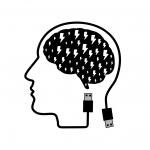



















Forming a career as a successful substance abuse counselor often requires postgraduate education. Prospective counselors begin their career path by earning a bachelor's degree. Ideally, the prospective counselor earns a bachelor's degree in a related field like counseling, social work, or psychology. However, some master's programs accept students with majors in unrelated areas. Bachelor's students increase their chances of entering a competitive master's program by gaining volunteer experience at a substance abuse counseling center.
Students need to pursue a masters after their graduation degree. Most programs encourage students to select a specialization within the broad field of counseling. Concentration courses offer in-depth knowledge about specific areas of counseling, like family counseling or early childhood psychology. After doing this, students usually pursue diploma courses in de-addiction therapy.
1. NIMHANS, Bengaluru 2. Cadabams Hospitals, Bengaluru 3. CHRIST (Deemed to be University), Bengaluru 4. Hindu College, New Delhi 5. Ambedkar University, New Delhi 6. Kamala Nehru College, New Delhi 7. Fergusson College, Pune 8. Lady Shri Ram College for Women, New Delhi
Also known as drug and alcohol counseling, these professionals works individually with his or her patients or in group counseling sessions depending on the kind of treatment needed. The goal is to help a client pinpoint the situations and behaviors that lead to relapse and block the road to recovery. The drug counselor may also help their clients find jobs or refer them to other resources, services, and support groups. In some cases, an addiction counselor may also conduct programs or informational sessions that teach not only their clients, but also family and friends of patients about addiction, behavioral disorders, coping strategies, signs of addiction, and how to avoid destructive behavior. Mental health professionals work in a variety of environments and settings and with a diverse demographic of people. They often work flexible hours to accommodate families in crisis or working couples who must have evening or weekend appointments. Addiction counseling and drug counseling is offered in general health care facilities like state, local, and private hospitals or in private practices. Prisons, probation and parole agencies, detox centers, halfway houses, and juvenile detention facilities are also common work environments for substance abuse counselors. Mental health counselors also work closely with other health specialists, such as psychiatrists, psychologists, clinical social workers, psychiatric nurses and school counselors. Much of this occupation requires the counselor to communicate in either individual or group environments. Job descriptions may vary but skills like active listening, social perceptiveness, critical thinking, and deductive reasoning are all paramount to success and safety as a counselor.